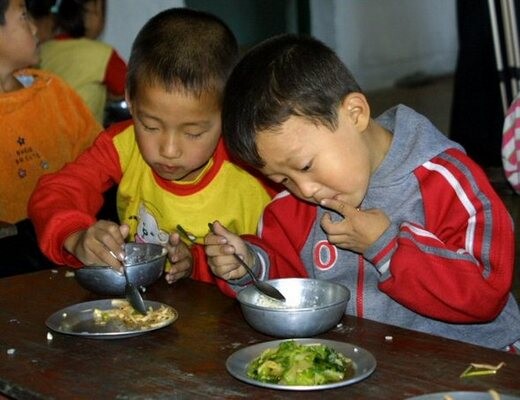hankyoreh
Links to other country sites 다른 나라 사이트 링크
Seeking resolution, U.S. offers rice to N. Korea

The United States has proposed giving 500,000 tons of rice to North Korea and is working on ways to guarantee transparency in the distribution of the rice, it has been confirmed.
The news is particularly notable because it comes at a time when the six-party talks on the North Korean nuclear issue are all but stalled over Pyongyang’s declaration of its nuclear programs, and appears to be a friendly measure seeking to encourage it to move forward and make its declaration in good faith.
The 500,000 tons would be the largest amount of food aid the United States has given North Korea since the start of the Bush administration in 2001. The United States stopped providing such aid in 2005 after discord with Pyongyang arose over distribution monitoring by the World Food Program, or WFP.
South Korean foreign minister Yu Myung-hwan, talking to reporters on March 27 in Washington, D.C., said that the WFP and North Korea are engaged in discussions to determine how the food should be distributed and monitored, adding that an agreement has yet to be arrived at. “WFP officials are going to visit North Korea soon to talk about distribution with officials there,” he said.
Yu added that with a U.S. presidential election coming in November, “if a decision is not reached before August it will be hard for the current U.S. administration to take action on food aid.”
Yu also commented on the six-party talks, saying that “another round of six-party talks have to be held in at least April for there to be momentum that could carry the process over into the next U.S. administration,” Yu said.
“In 2000, U.S. President Bill Clinton ran out of time before he could visit Pyongyang,” he said. “History would’ve been different if the process had moved just three months faster at the time.”
Please direct questions or comments to [englishhani@hani.co.kr]
Editorial・opinion
![[Editorial] Does Yoon think the Korean public is wrong? [Editorial] Does Yoon think the Korean public is wrong?](https://flexible.img.hani.co.kr/flexible/normal/500/300/imgdb/original/2024/0417/8517133419684774.jpg) [Editorial] Does Yoon think the Korean public is wrong?
[Editorial] Does Yoon think the Korean public is wrong?![[Editorial] As it bolsters its alliance with US, Japan must be accountable for past [Editorial] As it bolsters its alliance with US, Japan must be accountable for past](https://flexible.img.hani.co.kr/flexible/normal/500/300/imgdb/original/2024/0417/6817133413968321.jpg) [Editorial] As it bolsters its alliance with US, Japan must be accountable for past
[Editorial] As it bolsters its alliance with US, Japan must be accountable for past- [Guest essay] Amending the Constitution is Yoon’s key to leaving office in public’s good graces
- [Editorial] 10 years on, lessons of Sewol tragedy must never be forgotten
- [Column] A death blow to Korea’s prosecutor politics
- [Correspondent’s column] The US and the end of Japanese pacifism
- [Guest essay] How Korea turned its trainee doctors into monsters
- [Guest essay] As someone who helped forge Seoul-Moscow ties, their status today troubles me
- [Editorial] Koreans sent a loud and clear message to Yoon
- [Column] In Korea’s midterm elections, it’s time for accountability
Most viewed articles
- 1[Column] The clock is ticking for Korea’s first lady
- 2Samsung barricades office as unionized workers strike for better conditions
- 3[Editorial] When the choice is kids or career, Korea will never overcome birth rate woes
- 4Why Israel isn’t hitting Iran with immediate retaliation
- 5[News analysis] After elections, prosecutorial reform will likely make legislative agenda
- 6[Editorial] Does Yoon think the Korean public is wrong?
- 7S. Korea, Japan reaffirm commitment to strengthening trilateral ties with US
- 8[Editorial] As it bolsters its alliance with US, Japan must be accountable for past
- 9Japan officially says compensation of Korean forced laborers isn’t its responsibility
- 10Faith in the power of memory: Why these teens carry yellow ribbons for Sewol